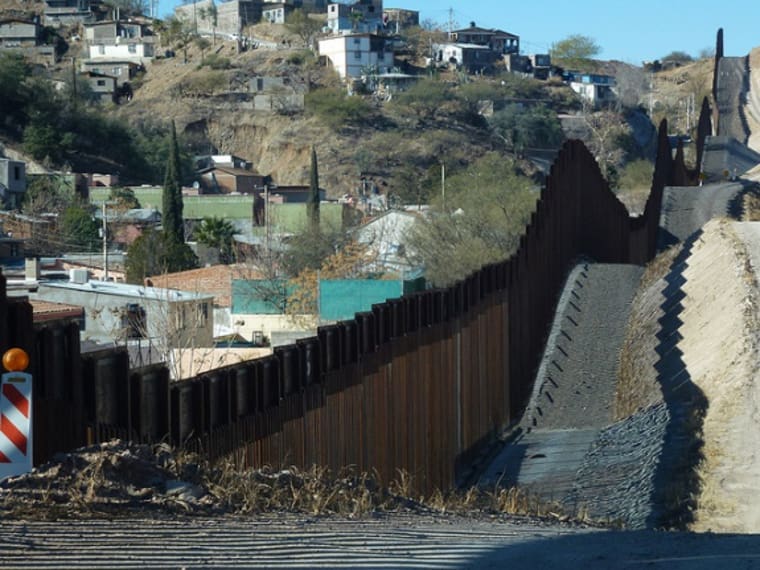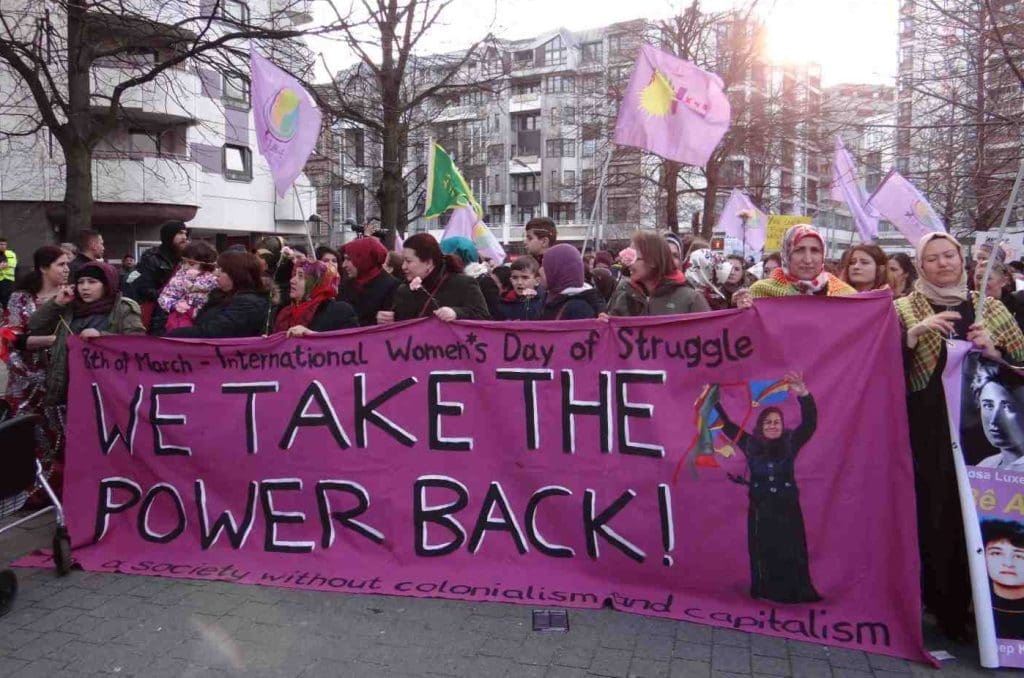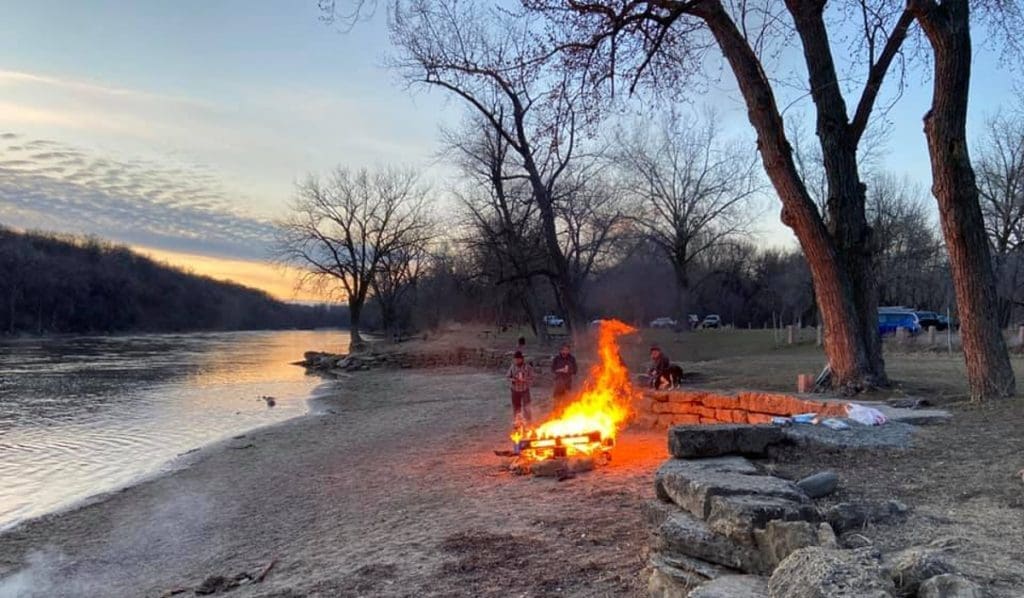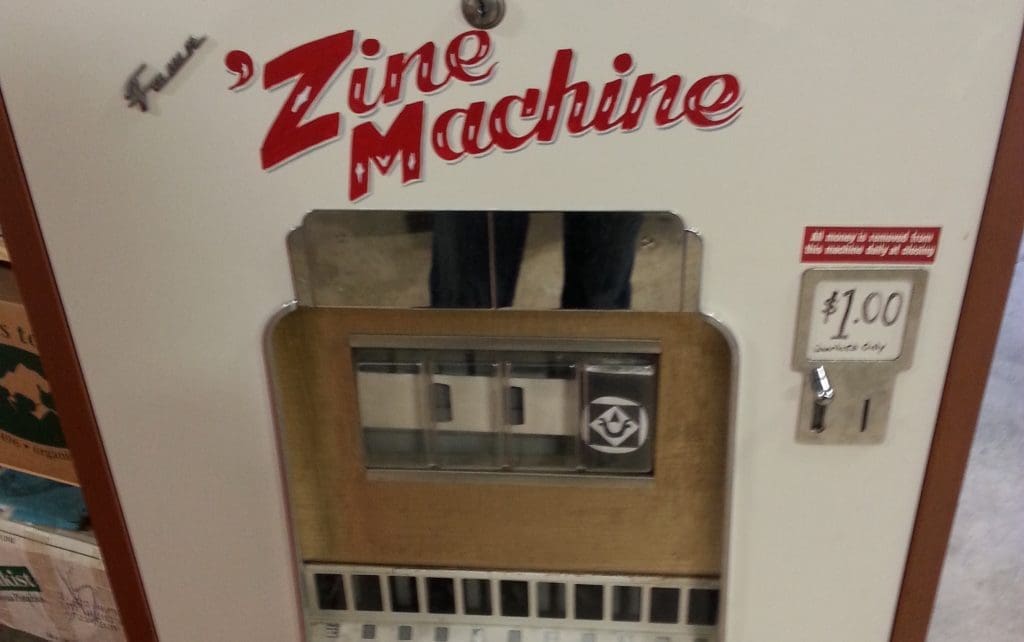Transcribed from This is Hell! Radio’s 2 August 2014 episode and printed with permission. Edited for space and readability. Listen to the full interview:
“They’re searching for a way out of the violence that this whole system generates, and no matter where they go they’re treated as criminals. They’re treated as extraneous human beings.”
Chuck Mertz: On the line with us right now, live from Mexico City, I believe, is our irregular correspondent Laura Carlsen. Good morning, Laura, and where are you?
Laura Carlsen: Good morning! Yes, I am in Mexico City.
CM: Laura is a columnist and policy analyst, and the director of the Americas Program for the Center for International Policy. She is based in Mexico City. Laura is a writer and editor of The Americas Updater which can be found at cipamercas.org. We are also very proud to call Laura one of our irregular correspondents.
So, Laura, last time you were on, you were translating while we were talking to women in Honduras who were being impacted by what is happening with the environment. That was really amazing. Very creative of you to do ‘man on the street’ interviews (if you will) about what is actually happening. I really appreciated that segment, so thank you very much.
LC: That was a wonderful opportunity. I think it’s so important to get the voices of people who are actually affected. And as we begin to talk about this issue, too, what we’re going to see is that there’s a relationship between those women who spoke about being displaced by these mega-development projects and what’s happening with the child migrant crisis in the United States today.
CM: Right, there’s a link there, and that link is being ignored.
When we talk about the “immigration crisis,” what is not mentioned very much is the War on Drugs. Something else that isn’t mentioned very much is the role the U.S. has played in assisting in the overthrow of democratically elected governments in Central America. There are so many of these aspects. But it seems like this is just living in a vacuum on its own.
What happens to our discussion and our understanding of the “immigration” crisis when we think it stands on its own and it has nothing to do with anything other than “these kids are just trying to get higher-paying jobs in the U.S.?”
LC: The whole issue has been completely manipulated from the start. I was startled when I saw that there was “suddenly” this child migrant crisis on the border. We’d known for years that there’s been an enormous increase in children migrating to the United States. Not just unaccompanied, but a lot of them with their mothers. And that’s another part of the story that gets ignored: the women who are taking their children up to join their husbands (generally speaking), and what happens to them along this trail.
And so we began to look, and discovered that this story was “broken” by Breitbart news, the very conservative news site. They pounded the issue as an “invasion” of children, who they literally portrayed as an “invasive species” to the United States rather than having any kind of refugee claim—which we know they do because we’ve actually talked to them.
So they created this whole crisis about kids on the border—that there has been a huge surge, and that it happened right now and in this particular way—as a means of striking at Obama for his immigration policies (which we would consider very weak—the Dream Act, for example, instead of what needs to be a total immigration reform) and to whip up this very racist attitude in the United States.
It’s been very discouraging to see how the issue has been presented, because those other issues that have been left out are very, very important. They are what constitutes the refugee claim of many of these migrants, which is now being ignored in a violation of international law; they are being denied the right to process these claims.
They’re coming from places where the drug war has exacerbated the violence. The overall militarization and the strategy of attacking the drug cartels by taking out kingpins has created smaller cartels that are much more aggressive in terms of their impact on communities.
And they also don’t restrict themselves to trafficking illegal drugs, but they go into extortion; they’re forcibly recruiting kids. Most of the kids we talked to in the teen range were coming up because they had been given an option: either join our gang or be killed immediately. And given those options, neither of which they wanted to choose, they came to the United States—where they already have close relatives, usually, including a parent.
So the drug war has had a huge impact on the explosion of violence that many of these kids are escaping from.
CM: There was a report last week by Erik Ortiz at NBC News where he reported that the exodus of immigrants from El Salvador, for instance, is fueled by U.S.-grown gangs. That is, undocumented workers in the U.S. get involved in gangs because they can’t find good-paying legitimate work so they join gangs, get a criminal record, and are deported back to—in this case—El Salvador. That new gang presence makes life worse in El Salvador, so parents send their kids to the U.S. in the hopes of a better future.
How much is the current immigration crisis a backlash to the past immigration crises that we’ve had in the past?
“What’s going on is not really a genuine search for a compassionate resolution to a humanitarian crisis but a political hot potato that everyone is looking for ways to abuse, to feed their own ideological, political positions.”
LC: It’s very clearly linked. The United States funded the dirty war in El Salvador; they funded the death squads. And there was a whole generation of refugees.
They are even semi-recognized as refugees, only because there was a huge sanctuary movement and a movement of people against those Central American dirty wars, especially in the faith-based community. They come up; their children are born in the United States, or a later generation sends their children. They’re still on the margins of society; they’re not accepted fully. There aren’t employment opportunities. They end up in drugs, they end up in prison, then they get deported back to El Salvador where they’re also part of a whole group of people that have been almost formally excluded from the Central American Free Trade Agreement—CAFTA—model of development.
So there are these people who are on the margins and they’re searching for a way to make a living. They’re searching for a way out of the violence that this whole system generates, and no matter where they go they’re treated as criminals and they’re treated as extraneous human beings.
CM: One of the plans to stem the flow of migrant children from Central America to the U.S. is to set up facilities in places like Honduras and El Salvador and Guatemala where children would be interviewed by U.S. immigration officials and temporarily sheltered in Honduras (or whichever country), while their cases are considered.
How much do you think such a system would take immigrant children out of harm’s way, when it comes to smugglers and the dangers of traveling and crossing the border?
LC: It’s a little hard for me to envision. First of all, everyone knows that proceedings for refugee status in the United States take years. They’re clearly not going to be able to create facilities that would handle, theoretically, the number of people who would be requesting refugee status to the United States and to keep them there for years.
I just can’t help thinking that this was probably not even meant to be a viable proposal. It was meant more to say, “okay, we’ll try to do something as if we recognize that there’s a legal claim to refugee status”—which, internationally, there is—“but we won’t let them come to our borders first.”
I don’t think it’s really workable, and I don’t think that it’s meant to be, and it still doesn’t deal with the root problem. These kids cannot “go back where they came from.” We have cases already where the gangs say “either join us or we’ll kill you,” and they do kill them. In the case of people who’ve been deported (not just from the United States—Mexico, which tends to do the United States’ bidding on all these issues, has also increased deportations back to Central America), there are reports that the gangs will wait at the bus stations, or wherever those Central Americans are arriving, to see if anybody gets off that bus that’s on their hit list.
CM: The Huffington Post reported last week: “Honduran president Juan Orlando Hernández and Guatemalan president Otto Pérez Molina talked with House Democrats and Republicans in separate meetings earlier last week. On Thursday of last week, the Central American leaders held a press conference with House Minority Leader Nancy Pelosi where they blamed the humanitarian crisis on coyotes—or human traffickers—who are deceiving parents.”
Are U.S. immigration concerns more about human trafficking, or trade deals?
LC: First of all, this excuse—that this surge is all due to recruiting by organized crime—is ridiculous. They’re just not that into PR, generally speaking. We heard stories here in Mexico that they were going around to communities with flyers. But it just doesn’t happen that way. So all the money that they’re supposedly going to put into “trying to stop rumors” about traveling to the United States is not likely to have a big effect.
The real concern of the United States is to use this in a backhanded way—and it’s already happening—to increase border security and increase the types of policies that have actually led to this problem. There’s a $300 million ‘foreign aid’ section of the $3.7 billion immigration bill that Obama first presented has some social programs; it has support for security and national police (which would further criminalize migrants within their own country, which is a contradiction in terms), and it has some interesting things like, for example, money to discourage countries from having trade relationships with Venezuela.
What does that have to do with the migrant crisis? But no matter what kind of problem comes up, and no matter how much evidence there is that the policies themselves that the United States has been carrying out—free trade, of the drug war, and of course of military interventions—led to the crisis, the response always ends up being to reinforce those same policies.
What’s going on is not really a genuine search for a compassionate resolution to a humanitarian crisis but a political hot potato that everyone is looking for ways to abuse, to feed their own ideological, political positions.
“These kids would like nothing more than to be in their homes, safe, with their family. They’re not going to the United States because they think it’s a better society or because they want a few extra dollars in their pocket. They’re going because they don’t have any choice.”
CM: Earlier today we were speaking with Jonathan Simon. He’s got a new book out called Mass Incarceration on Trial: A Remarkable Court Decision and the Future of Prisons in America, and back in 2008 he wrote Governing Through Crime: How the War on Crime Transformed American Democracy and Created A Culture of Fear. He argues that it looks like mass incarceration may be on the way out.
But he said that his fear is that the mass-incarceration prison industrial complex is going to be replaced by a deportation-and-detention prison industrial complex. Do you have that same concern?
LC: Yes. We’re already seeing it. CCA, which is one of the major private prison companies, say outright in their reports that they are keeping close track of public policy, because any change in drug policy and immigration policy would “severely hurt their business.”
What do they mean by that? Obviously they mean anything that would work to legalize migrants or to loosen up drug policies so you can’t throw somebody behind bars for years for having a joint would mean that they have much fewer clients. Because in this privatized industry, they’re not prisoners anymore, they’re clients. And their whole market plan is to increase the number of clients.
That means you have to have more criminals. And in a country where, statistically, crime has been going down for quite some time, that means creating new categories of criminals. So they’ve been quickly creating new categories, and particularly in the area of immigration.
Many of the people who are deported supposedly because they committed a felony actually committed a crime that didn’t exist just years ago. It would have been considered an administrative fault—inventing a social security number, for example. Several of these administration crimes now have been registered as felonies. The administration says we’re only deporting people who have a criminal record, but it turns out that the criminal record is a series of crimes that were created specifically to deport and detain a specific group of people: immigrants.
And we have to say, too, that we’re not talking about all immigrants. This is a race-based system.
CM: Right. You do not see targeting of Irish or Canadian immigrants.
If the U.S. actually wanted these migrant kids to go home and stay there, and never attempt to try to illegally enter the United States in the future, what would the right U.S. policy be?
LC: It’s just tragic. You talk to these kids, and they would like nothing more than to be in their homes, safe, with their family. They’re not going to the United States because they think it’s a better society or because they want a few extra dollars in their pocket. They’re going because they really don’t have any choice.
What needs to be done so families can stay together in their own communities? First of all we have to take a close look at CAFTA and NAFTA. There has been massive economic displacement; the poverty rates have gone up because of these policies. What do we have to do to change them?
In the United States there’s a fund for transition of workers laid off because of NAFTA. Central America, which has twice the problem, was never given anything like that. Nor was Mexico. The agricultural sector needs to be excluded completely, because it’s forced to compete on unfair terms. It’s had a huge impact in the rural parts of all these countries—El Salvador, Guatemala, Honduras and Mexico are the four we’re talking about in this current crisis—and that’s where you see the extreme poverty that’s forcing people out.
And as to the violence, we have to start getting real about this. We have seen the results of the drug war. They are completely contrary to what these policies are supposed to be doing. But they’re making a lot of money for defense contractors. They’re making a lot of political gains for hawks in Congress, and they’ve created a crisis in public security all over the region, from Mexico to Guatemala and the other countries as well.
We really have to end the drug war now, and start putting some of that money into the social programs that will create jobs for young people, that will create something that they can look forward to and give them options beyond becoming either prey for organized crime or refugees.
CM: I’ve got one last question for you, Laura. What was the reaction within Mexico to all those scary white Americans protesting the buses—full of kids—trying to get to immigration processing centers? What was the reaction in Mexico to that really ugly, racist protest?
LC: Well, of course it was covered widely, and there was a lot of indignation. Without being able to speak for everyone, I would say that the primary response was one of great sadness.
Mexicans know only too well—on both a personal and a political level—the relationship between the United States and Mexico. They even have a fair degree of respect for the United States despite a history of invasions and tensions between the two countries, because most people have relatives in the United States. The level of bi-national families is really high.
So when they see something like that, it causes fear for their loved ones who are there. It’s almost incomprehensible for people. It’s really hard to understand where such a violent and aggressive reaction is coming from.
So it’s been a very sad thing to see. Most people are hoping that somehow this will be resolved. They’ve seen the hope of comprehensive immigration reform rise—and then evaporate—so many times, and yet it’s hard to imagine a future without it.
CM: Laura, I really appreciate you being on the show with us this morning.
LC: Thanks, Chuck. Best to all of you, too.
Featured image source: Immigration Impact





